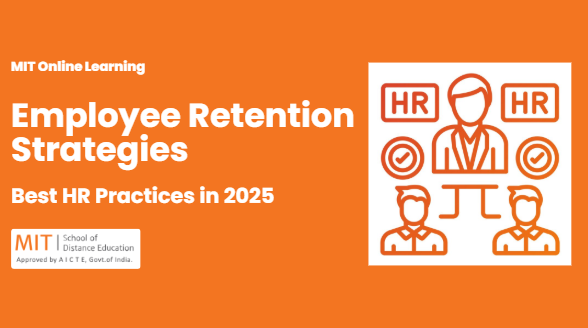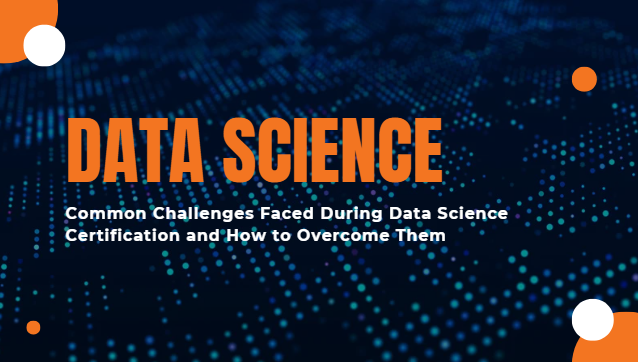
In 2025, employee retention has become a top priority for organizations across industries. With rapid digital transformation, hybrid work models, and evolving workforce expectations, keeping top talent goes beyond competitive salaries. Companies must focus on culture, growth opportunities, and employee engagement to maintain loyalty.
For HR professionals and aspirants exploring distance PGDM HRM or other post graduate diploma in HR programs, understanding modern retention strategies is essential for creating effective people-first workplaces.
Why Employee Retention Matters Today
Employee retention impacts productivity, morale, and profitability. Several trends make it more critical than ever:
- Skill Shortages: The rise of automation, AI, and analytics increases demand for skilled employees. Losing trained talent can cost companies both time and resources.
- Flexible Work Expectations: Employees now expect remote and hybrid options. Companies that fail to provide flexibility may face higher turnover.
- Employee Well-being: Mental health and work-life balance are crucial. Organizations that neglect well-being risk burnout and attrition.
- Cultural Alignment: Employees stay longer when their values align with the company’s mission and culture.
What Are the Key Employee Retention Strategies in 2025?
1. Flexible Work Arrangements
Hybrid and remote work are now standard expectations. Offering flexible schedules improves engagement and demonstrates trust, which directly boosts retention.
2. Learning and Career Development
Continuous learning is one of the most effective retention tools. Training programs, certifications, and career pathways help employees grow while adding value to the organization. Programs like best distance PGDM HR courses equip HR professionals to create robust learning frameworks and succession plans.
3. Personalized Employee Experience
From onboarding to performance recognition, personalizing the employee experience fosters loyalty. Digital HR tools can tailor career paths, feedback systems, and rewards to individual needs.
4. Transparent Communication
Open communication reduces misunderstandings and disengagement. Real-time feedback, regular check-ins, and clear performance expectations help employees feel valued and informed.
5. Competitive Compensation and Benefits
While not the only factor, fair and transparent compensation remains crucial. Total rewards packages—combining financial incentives with wellness programs, flexible schedules, and learning opportunities—improve retention.
6. Wellness and Mental Health Support
Well-being programs that address physical, mental, and emotional health show employees that their overall wellness matters. Comprehensive programs reduce stress and improve workplace satisfaction.
7. Recognition and Appreciation
Recognition drives motivation. Peer-to-peer recognition platforms, digital reward systems, and timely acknowledgment of achievements reinforce employee value and engagement.
8. Strong Leadership
Employees often leave managers, not organizations. Coaching leaders to be empathetic, supportive, and communicative can improve retention dramatically.
9. Diversity, Equity, and Inclusion (DEI)
Inclusive workplaces enhance engagement. Organizations that prioritize DEI and provide equal growth opportunities retain employees longer and foster a positive culture.
10. Purpose-Driven Work
Employees increasingly seek meaningful work. Organizations that align goals with social, environmental, or ethical initiatives create a sense of purpose that encourages loyalty.
HR Education: Strengthening Retention Practices
To implement these strategies effectively, HR professionals need the right skills and knowledge. Programs like a PG Diploma in HR or post graduate diploma in HR equip learners with expertise in talent management, employee engagement, and strategic HR planning.
- A top PG diploma in human resource management provides insight into recruitment, compensation, labor laws, and employee relations.
- Modern HR roles demand strategic thinking and data-driven decision-making. Courses like best PG diploma in human resource management train professionals to use HR analytics, design engagement programs, and implement effective retention strategies.
- Distance PGDM HRM programs allow working professionals to gain these skills flexibly without interrupting their careers.
What are some industry examples of effective retention strategies?
Different sectors are innovating to retain talent:
- IT & Tech: Flexible hybrid work, upskilling programs, and AI-driven career planning improve engagement.
- Healthcare: Emotional support programs, training, and development opportunities are key to retention.
- Manufacturing: Safety initiatives, skill development, and succession planning reduce turnover.
- Retail: Recognition programs, flexible scheduling, and employee discounts keep staff motivated.
How is MITSDE empowering future HR leaders?
MITSDE offers a range of programs designed to prepare HR professionals to implement these strategies effectively. Their courses combine practical insights with flexible learning models, making them ideal for working professionals.
HR Programs at MITSDE
- PGDM Human Resource Management
- Focuses on talent acquisition, employee engagement, performance management, and compensation planning.
- Suitable for early-career HR aspirants or professionals switching careers.
- PGDM Executive in Human Capital Management
- Designed for mid-to-senior-level professionals, emphasizing strategic HR leadership and talent management.
- Designed for mid-to-senior-level professionals, emphasizing strategic HR leadership and talent management.
- PGDBA Human Resource Management
- Combines HR concepts with managerial skills, preparing learners for integrated HR and business roles.
- Combines HR concepts with managerial skills, preparing learners for integrated HR and business roles.
- Certification in Human Resource Management
- Short-term, skill-focused certification for upskilling in areas like employee relations, labor laws, and performance management.
- Short-term, skill-focused certification for upskilling in areas like employee relations, labor laws, and performance management.
- EMBA in Human Resource Management
- Targets experienced professionals aiming for leadership roles, focusing on strategic HR, global workforce management, and decision-making.
These courses make MITSDE one of the top choices for HR education, providing access to some of the best distance PGDM HR courses and advanced HR knowledge. Whether you are pursuing a post graduate diploma in HR or a specialized program, MITSDE equips you with the expertise to implement modern retention strategies successfully.
Conclusion
Employee retention in 2025 requires a proactive, employee-centered approach. Organizations must focus on flexibility, learning opportunities, well-being, inclusivity, and purpose to keep talent engaged.
For HR professionals, formal education plays a crucial role. Programs like PGDM, PGDM Executive, PGDBA, Professional Certification, and EMBA offered by MITSDE provide the skills needed to lead retention strategies and drive organizational success.
With the right education and strategies, HR leaders can create workplaces where employees not only stay but thrive.



